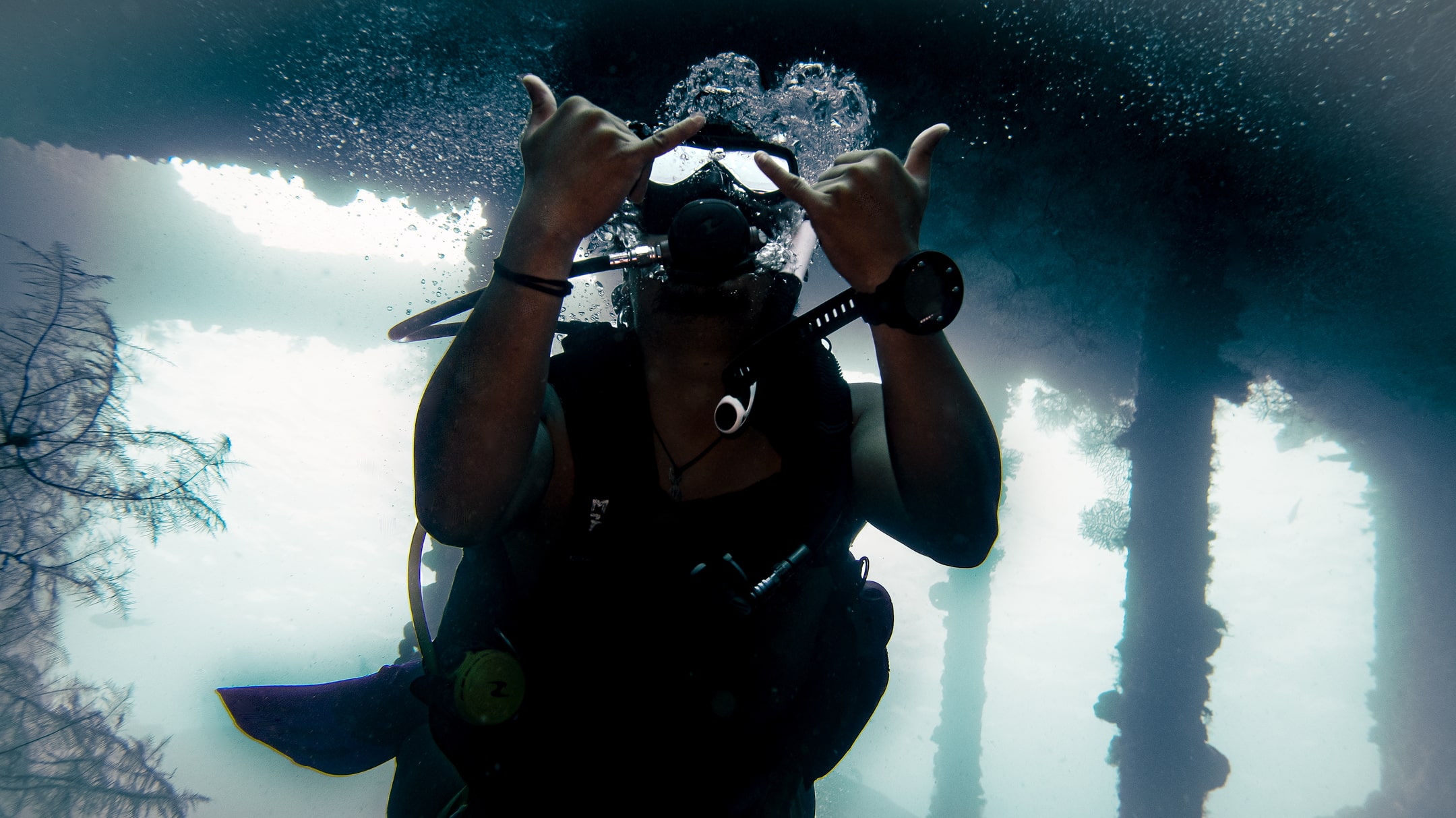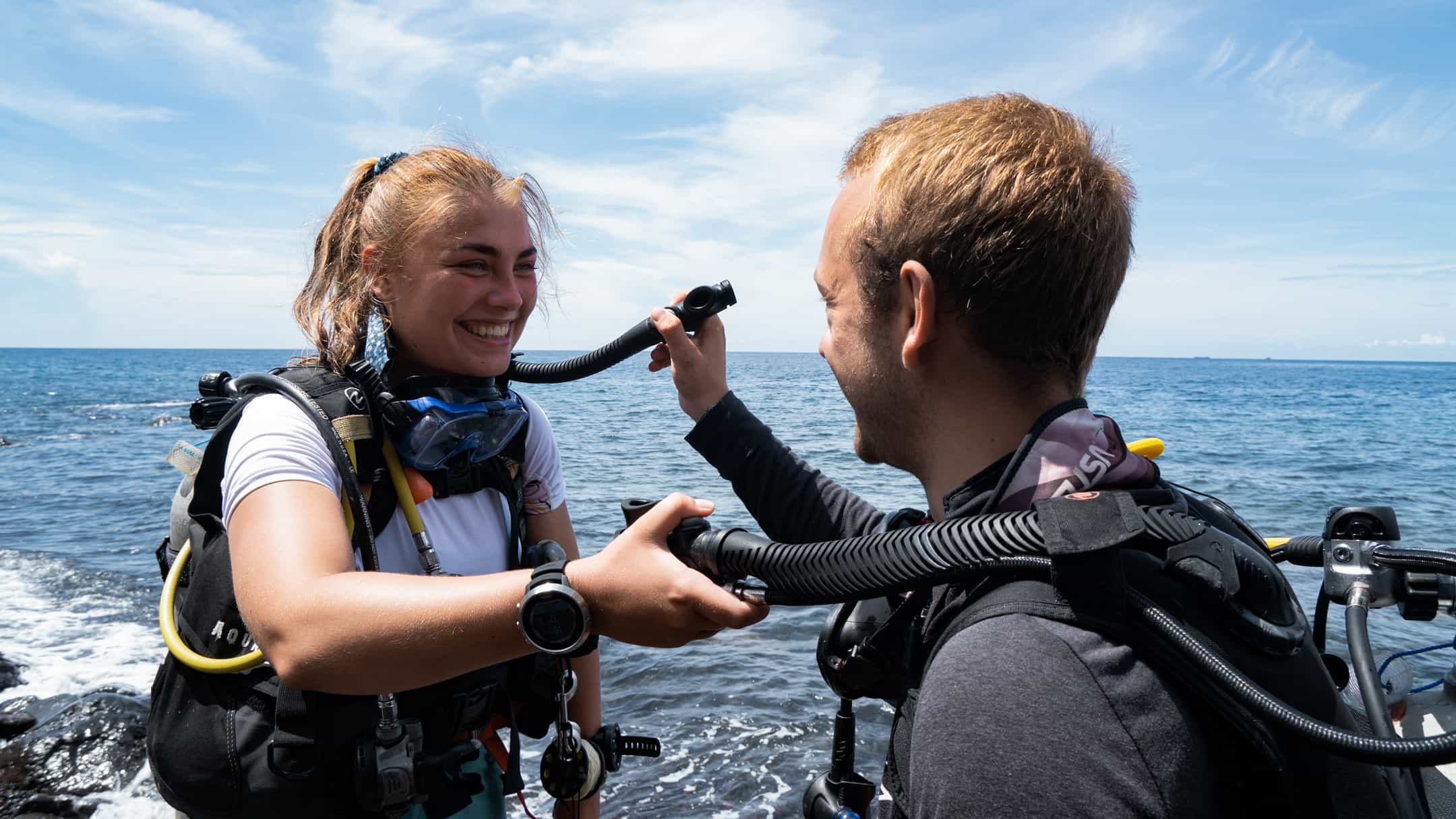
Rescue diver is known as one of the most intense PADI dive courses. It is the first level in which you expand your scope to your fellow divers. You will start scanning their equipment and behaviour to notice emergencies before they happen! Furthermore, rescue diver is the last recreational course. After rescue, the path to divemaster opens up diving professionally.
In short, every diver should look into becoming a rescue diver. Why? Because it will improve your underwater skills, it shows your buddy you care about his safety, you become an official emergency first responder and you prevent regret by being able to help. These are only a few reasons, there are many more out there!
Refine Your Skills
As a Rescue Diver, you’ll learn both how to confidently handle stress and how to recognize stress in other divers too. You learn to take accountability for your own safety and the divers around you. Learn about the components of an emergency assistance plan and how to use emergency assistance plans to potentially save lives. You will refine your skills both in pool sessions and in open water dives. Among other things you will learn how to save a non-breathing and unresponsive diver, a panicked diver and a tired diver. After the theoretical part, situations in which these emergencies happen are simulated. Because you are taking care of other divers, this course can be very intense, it is both physically and mentally demanding. But out of experience, I can tell you that it is a very rewarding course!
Show Your Buddy You Care!
It does not matter if your buddy has ten dives or a thousand, emergencies can happen to every diver. It is very naïve to think, oh my buddy is an instructor with a thousand dives, I have nothing to worry about. Your instructor might experience a stroke underwater or might go into shock, would you know how to handle these situations at the bottom of the ocean? Personally, I would rather dive with someone who knows how to handle these situations, wouldn’t you? Becoming a rescue diver shows your buddy that you care about his safety, you get trained to handle emergencies and prevent tragedies from happening. Even if there is a more experienced diver present, such as a divemaster or instructor, it does not mean that your help is not required. As a PADI rescue diver you would assist these more experienced divers with rescue scenarios, this might mean conducting a search and recovery, or applying CPR on a non-responsive diver.

EFR Certified on Land too!
EFR stands for Emergency First Responder. Once you are EFR certified you are capable of repsonding to emergencies and helping the people involved. Eventhough you would most likely take this course as a requirement for your rescue diver course, the skills you learn are widely applicable on land. For instance, you will learn how to apply bandages, or a tourniqette. This could come in handy if a diver get pushed against a sharp rock during a drift dive, but also if on of your friends slips and ends up with a nasty cut. Furthermore, what happens if you are going out for dinner with family and one of your family members goes into cardiac arrest, with EFR you are trained to apply CPR. These are all situations we do not want to encouter, but sadly these situations do ocasionally take place. In these cases, you want to do everything you can in order to help.
Prevent Regret
When an emergency occurs, you might respond in different ways. Maybe you will freeze, not knowing how to deal with the situation. You might want to help, but not know how to, or you are afraid of making the situation worse. Sometimes, we might not help at all because we think we are not trained well enough to handle the situation. Not handling can result in regret, you will always wonder, was there something more I could have done? When you are trained as a rescue diver, you learn how to deal with these fears and feeling of regret. There is a recurring theme in your training, you will hear this a lot; Adequate care provided is better than perfect care withheld. This teaches us that we should always help, even if you think you will not be able to provide perfect care, it is still better than not providing help at all. Consequently, you will be able to better deal with feelings of regret or maybe event prevent these feelings.

Conclusion
Diving is all about having fun, however, safety is the most important aspect. To increase your safety and that of your buddy you should consider becoming a rescue diver. There is a saying in diving that applies to rescue diver as well. Be the diver you want to dive with. This means, act as a diver that you would like to have as your buddy. I am sure we would all like to have a dive buddy that knows his way around an emergency!



